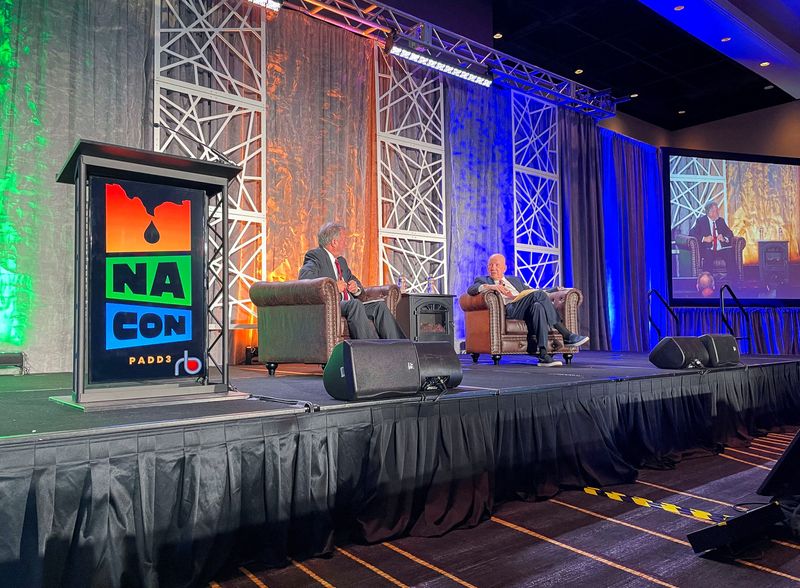New Permian oil pipelines unlikely to be built, say top operators
By Arathy Somasekhar
HOUSTON (Reuters) -Top executives of two U.S. energy pipeline operators on Thursday ruled out seeking new crude oil lines built to move volumes out of the Permian shale field in West Texas because of tepid volume growth and difficulties constructing new lines.
A wave of consolidation in the top U.S. shale field has concentrated output in the hands of companies that are promising to restrain output so as not to crash prices by over-producing. Pipeline firms also have embraced acquisitions over new construction.
Enterprise Products Partners (NYSE:EPD ) co-CEO Jim Teague said at a Houston energy conference his firm is not considering a new oil pipeline out of West Texas. The CEO of rival operator Plains All American Pipeline said at the same event companies are more likely to optimize existing rather than build new lines.
Enbridge (NYSE:ENB ) will add up to 120,000 barrels per day (bpd) to its Gray Oak oil pipeline by 2026, an example of expanding capacity on an existing pipeline.
PRICE NO LONGER INCENTIVIZES DRILLERS
Both Chiang and Teague said Permian shale producers are not likely to return to their era of fast-growth that prompted the construction of new oil lines last decade.
Drillers remain disciplined in their spending for new volumes and do not look to drill and grow production even if prices jump from current levels, Chiang added.
"A range of roughly of $60 to $90 (per barrel) doesn't change their plans too much," he said.
Output from the Permian basin in the next few years could rise about 300,000 bpd, he said, largely in line with the latest government estimate.
DEEPWATER EXPORT PROJECTS LAG
Enterprise' Teague also said that his company continues to advance its proposed deepwater oil export project, Sea Port Oil Terminal (SPOT), but "nobody wants to be (the) first" customer to sign up.
Multi-year regulatory delays, a loss of commercial backers and slowing U.S. shale oil production growth has SPOT and three rival offshore oil-export projects struggling.
A change in crude flows as many Western nations banned imports of Russian crude after the country's invasion of Ukraine, pushing Russian oil to flow to Asia, also has undercut the outlook for U.S. deepwater export projects that can load supertanker directly.
"Things have changed, but my gut feeling is that we'll be able to get SPOT across the finish line," Teague said while speaking at an RBN Energy conference in Houston.
However, Plain's Chiang said "the jury is out on SPOT," saying it while it makes a lot of sense on paper, existing export contracts and systems could limit availability of customers.
Source: Investing.com
